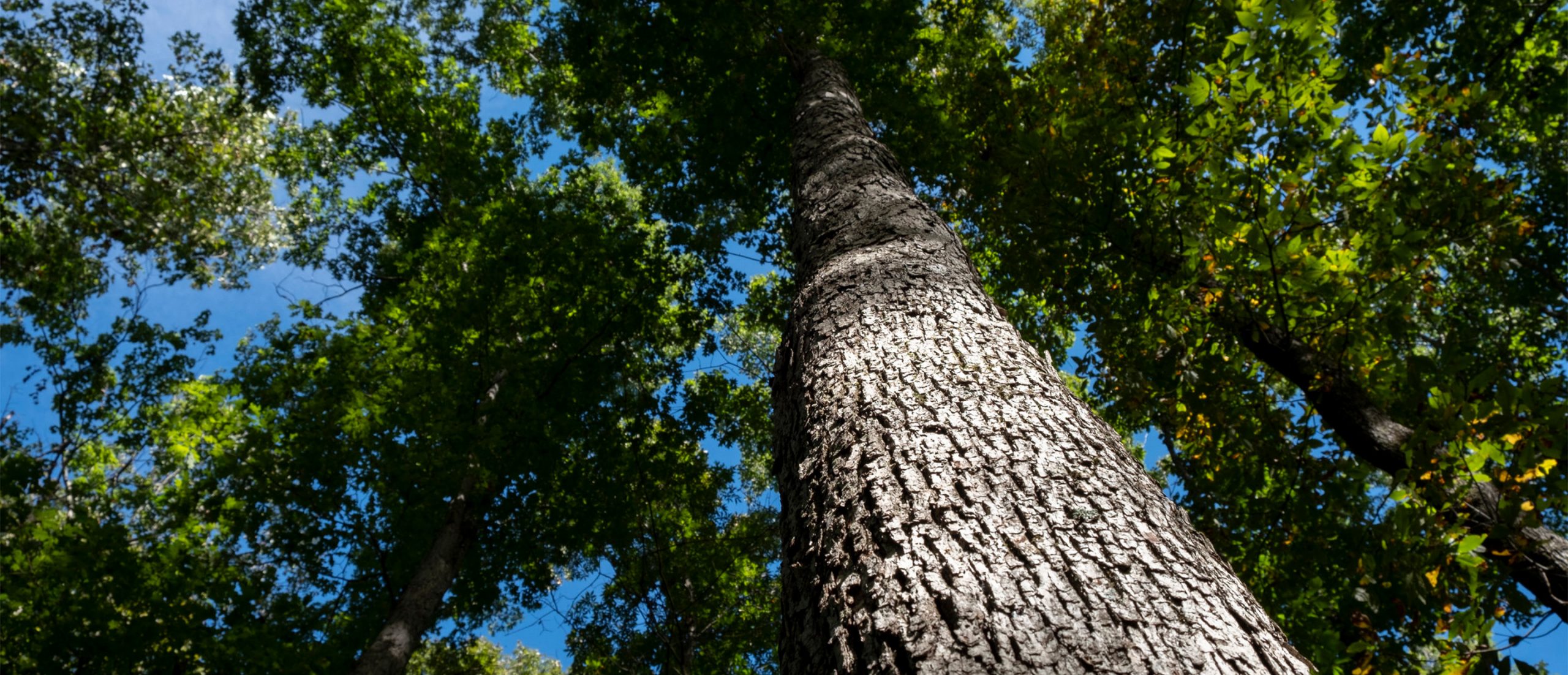Web Series Shines Light on Essential White Oak
EDGEFIELD, S.C. — As part of the Michigan Society of American Foresters’ new webinar series, the NWTF will co-host a webinar about managing oaks for wildlife habitat.
“The webinar series offers a look at white oak, its importance and how this valuable tree species can be better managed,” said Mike Smalligan, member of the Michigan Society of American Foresters and forest stewardship coordinator for the Michigan Department of Natural Resources. “White oak is declining because not all land use and forest management practices are promoting natural regeneration.”
The five-part series is tailored for foresters, land managers and family forest landowners wanting to amplify their knowledge about white oak and learn best practices for growing and using it.
A new episode will be offered from November through March on the first Wednesday of each month.
The webinars are free, but attendees must register in advance. All webinars will run 3-4:30 p.m. (Eastern). Topics include:
- Nov. 2: Oak ecology and silviculture. Speakers are Greg Nowacki, Stacy Clark and Callie Schweitzer, all with the USDA Forest Service. Register.
- Dec. 7: Insects and diseases of oak. Speakers are Deb McCullough, Michigan State University Department of Forestry and Isabel Munck, USDA Forest Service. Register.
- Jan. 4: Markets and economics for oak in Michigan. Speakers are Chris Schmiege and Jagdish Poudel of the Michigan Department of Natural Resources. Register.
- Feb. 1: Restoration of rare oak ecosystems. Speakers are Jesse Lincoln, Michigan Natural Features Inventory and Steve Woods, Huron Pines. Register.
- March 1: Managing oak for wildlife. Speakers are Ryan Boyer, National Wild Turkey Federation, and Michael Paling, American Bird Conservancy. Register.
“These webinars are an innovative way that we can reach the public and share the importance of active forest management to ensure healthy forests and abundant wildlife populations,” said Ryan Boyer, NWTF district biologist for Michigan, Indiana and Ohio. “We are also hosting private landowner workshops and developing communications pieces to help further this important message. These examples were only made possible through the strong partnership between the Michigan DNR and the NWTF as well as the many others who are intimately invested in the broader-scale White Oak Initiative.”
The NWTF has a rich history promoting oak in the Wolverine State and across the species’ range. For instance, The NWTF recently secured $358,000 in funding thanks to a generous grant provided by the Michigan Department of Natural Resources via the agency’s Wildlife Habitat Grant Program.
The newly acquired funding allows the NWTF and partners in Michigan to restore and enhance imperiled oak ecosystems, including white oak, and other high-priority habitats. The project is delivering conservation work on over 1,050 acres of oak ecosystems and totals more than $550,000 in project costs over two years.
A decline in the number of oak trees led to the 2018 formation of the White Oak Initiative, a national coalition of industries, universities, state and federal agencies, private landowners, trade associations and conservation organizations – including the NWTF – working together to address the decline.
“White Oaks have incredible ecological value for wildlife, and their acorn production is vital to the wild turkey and other wildlife,” said Boyer.
About the National Wild Turkey Federation
Since 1973, the National Wild Turkey Federation has invested over half a billion dollars into wildlife conservation and has positively impacted over 22 million acres of critical wildlife habitat. The NWTF has also invested over $8.5 million into wild turkey research to ensure the wild turkey population remains healthy. The organization continues to deliver its mission by working across boundaries on a landscape scale to increase clean and abundant water, healthy forests and wildlife habitat, resilient communities and robust recreational opportunities across the U.S. With the help of its dedicated members, partners and staff, the NWTF will continue its work to provide Healthy Habitats and Healthy Harvests for future generations.
